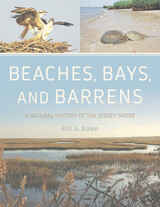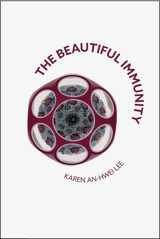130 books about Knowledge, Theory of and 6
start with A
130 books about Knowledge, Theory of and 6
130 books about Knowledge, Theory of
6 start with A start with A
6 start with A start with A
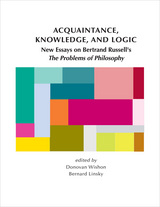
Acquaintance, Knowledge, and Logic
New Essays on Bertrand Russell's "The Problems of Philosophy"
Edited and with an Introduction by Donovan Wishon and Bernard Linsky
CSLI, 2015
Bertrand Russell, the recipient of the 1950 Nobel Prize for Literature, was one of the most distinguished, influential, and prolific philosophers of the twentieth century. Acquaintance, Knowledge, and Logic brings together ten new essays on Russell’s best-known work, The Problems of Philosophy. These essays, by some of the foremost scholars of his life and works, reexamine Russell’s famous distinction between “knowledge by acquaintance” and “knowledge by description,” his developing views about our knowledge of physical reality, and his views about our knowledge of logic, mathematics, and other abstract matters. In addition, this volume includes an editors’ introduction, which summarizes Russell’s influential book, presents new biographical details about how and why Russell wrote it, and highlights its continued significance for contemporary philosophy.
[more]
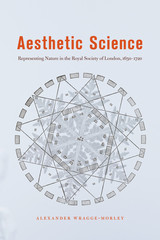
Aesthetic Science
Representing Nature in the Royal Society of London, 1650-1720
Alexander Wragge-Morley
University of Chicago Press, 2020
The scientists affiliated with the early Royal Society of London have long been regarded as forerunners of modern empiricism, rejecting the symbolic and moral goals of Renaissance natural history in favor of plainly representing the world as it really was. In Aesthetic Science, Alexander Wragge-Morley challenges this interpretation by arguing that key figures such as John Ray, Robert Boyle, Nehemiah Grew, Robert Hooke, and Thomas Willis saw the study of nature as an aesthetic project.
To show how early modern naturalists conceived of the interplay between sensory experience and the production of knowledge, Aesthetic Science explores natural-historical and anatomical works of the Royal Society through the lens of the aesthetic. By underscoring the importance of subjective experience to the communication of knowledge about nature, Wragge-Morley offers a groundbreaking reconsideration of scientific representation in the early modern period and brings to light the hitherto overlooked role of aesthetic experience in the history of the empirical sciences.
To show how early modern naturalists conceived of the interplay between sensory experience and the production of knowledge, Aesthetic Science explores natural-historical and anatomical works of the Royal Society through the lens of the aesthetic. By underscoring the importance of subjective experience to the communication of knowledge about nature, Wragge-Morley offers a groundbreaking reconsideration of scientific representation in the early modern period and brings to light the hitherto overlooked role of aesthetic experience in the history of the empirical sciences.
[more]
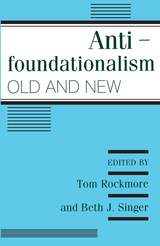
Antifoundationalism
edited by Tom Rockmore and Beth J. Singer
Temple University Press, 1991
"[The book] illuminate[s] the philosophical urge to attain certainty and system, and especially system that is based on certain and indubitable ground. The historical approach works well.... This collection makes no pretensions, yet manages to deliver important contributions to the continuing inquiry."
--John Lachs, Vanderbilt University
The debate over foundationalism, the viewpoint that there exists some secure foundation upon which to build a system of knowledge, appears to have been resolved and the antifoundationalists have at least temporarily prevailed. From a firmly historical approach, the book traces the foundationalism/antifoundationalism controversy in the work of many important figures--Animaxander, Aristotle and Plato, Augustine, Descartes, Hegel and Nietzsche, Habermas and Chisholm, and others--throughout the history of philosophy. The contributors, Joseph Margolis, Ronald Polansky, Gary Calore, Fred and Emily Michael, William Wurzer, Charlene Haddock Siegfried, Sandra B. Rosenthal, Kathleen Wallace, and the editors present well the diversity, interest, and roots of antifoundationalism.
[more]
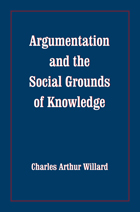
Argumentation and the Social Grounds of Knowledge
Charles Arthur Willard
University of Alabama Press, 2009
Charles Willard's provocative Argumentation and the Social Grounds of Knowledge is not a celebration of controversy but a sophisticated study that explores the social basis of human knowledge. Drawing upon phenomenologists such as Alfred Schultz, psychologists such as George Kelley, and argumentation philosophers such as Stephen Toulmin, Willard makes a genuine contribution to intellectual inquiry by extending essential consideration about human knowledge. He insightfully demonstrates how "secular sources" provide a fundamental resource in developing religious understanding from argumentative interactions.
[more]
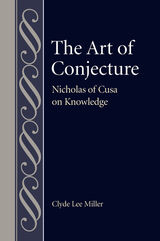
The Art of Conjecture
Nicholas of Cusa on Knowledge
Clyde Lee Miller
Catholic University of America Press, 2021
“Learned ignorance,” the recognition that God is beyond us and our knowing capacities is the theological concept for which Nicholas of Cusa is most famous. Despite God’s apparent absence Nicholas offers original ways to think about God that would unite his presence with his absence. He called these proposals “conjectures” (coniecturae). Conjecture and conjecturing are central to the methodology of Nicholas’s philosophical theology and to his thinking about human knowledge.
By using concrete examples from the everyday life of his times as symbolic imagery Nicholas makes what we say about God imaginatively available and theoretically plausible. He called such conjectural symbols “aenigmata” (= “symbolic or ‘enigmatic’ conjectures”) because they partially clarify and likewise point to an exact truth that is beyond us. Novel and imaginative, Nicholas’s conjectural examples break with the traditional medieval Aristotelian examples and provide further evidence of his role as a figure bridging medieval and Renaissance thought.
Following his earlier book, Reading Cusanus (The Catholic University of America Press, 2003), Clyde Lee Miller here examines and comments on the meaning of “conjecture” in Nicholas of Cusa. The Art of Conjecture: Nicholas of Cusa on Knowledge explores what Nicholas meant by conjecture and its import as demonstrated in his treatises and sermons. Beginning with Nicholas’ On Conjectures, Miller analyzes a series of conjectural symbols and proposals across Nicholas’s less frequently discussed texts and recently published sermons. This early Renaissance thinker offers an original and ground-breaking way of framing speculation in philosophical theology and more generally in philosophy itself.
[more]

Axiomatics
Mathematical Thought and High Modernism
Alma Steingart
University of Chicago Press, 2023
The first history of postwar mathematics, offering a new interpretation of the rise of abstraction and axiomatics in the twentieth century.
Why did abstraction dominate American art, social science, and natural science in the mid-twentieth century? Why, despite opposition, did abstraction and theoretical knowledge flourish across a diverse set of intellectual pursuits during the Cold War? In recovering the centrality of abstraction across a range of modernist projects in the United States, Alma Steingart brings mathematics back into the conversation about midcentury American intellectual thought. The expansion of mathematics in the aftermath of World War II, she demonstrates, was characterized by two opposing tendencies: research in pure mathematics became increasingly abstract and rarified, while research in applied mathematics and mathematical applications grew in prominence as new fields like operations research and game theory brought mathematical knowledge to bear on more domains of knowledge. Both were predicated on the same abstractionist conception of mathematics and were rooted in the same approach: modern axiomatics.
For American mathematicians, the humanities and the sciences did not compete with one another, but instead were two complementary sides of the same epistemological commitment. Steingart further reveals how this mathematical epistemology influenced the sciences and humanities, particularly the postwar social sciences. As mathematics changed, so did the meaning of mathematization.
Axiomatics focuses on American mathematicians during a transformative time, following a series of controversies among mathematicians about the nature of mathematics as a field of study and as a body of knowledge. The ensuing debates offer a window onto the postwar development of mathematics band Cold War epistemology writ large. As Steingart’s history ably demonstrates, mathematics is the social activity in which styles of truth—here, abstraction—become synonymous with ways of knowing.
Why did abstraction dominate American art, social science, and natural science in the mid-twentieth century? Why, despite opposition, did abstraction and theoretical knowledge flourish across a diverse set of intellectual pursuits during the Cold War? In recovering the centrality of abstraction across a range of modernist projects in the United States, Alma Steingart brings mathematics back into the conversation about midcentury American intellectual thought. The expansion of mathematics in the aftermath of World War II, she demonstrates, was characterized by two opposing tendencies: research in pure mathematics became increasingly abstract and rarified, while research in applied mathematics and mathematical applications grew in prominence as new fields like operations research and game theory brought mathematical knowledge to bear on more domains of knowledge. Both were predicated on the same abstractionist conception of mathematics and were rooted in the same approach: modern axiomatics.
For American mathematicians, the humanities and the sciences did not compete with one another, but instead were two complementary sides of the same epistemological commitment. Steingart further reveals how this mathematical epistemology influenced the sciences and humanities, particularly the postwar social sciences. As mathematics changed, so did the meaning of mathematization.
Axiomatics focuses on American mathematicians during a transformative time, following a series of controversies among mathematicians about the nature of mathematics as a field of study and as a body of knowledge. The ensuing debates offer a window onto the postwar development of mathematics band Cold War epistemology writ large. As Steingart’s history ably demonstrates, mathematics is the social activity in which styles of truth—here, abstraction—become synonymous with ways of knowing.
[more]
READERS
Browse our collection.
PUBLISHERS
See BiblioVault's publisher services.
STUDENT SERVICES
Files for college accessibility offices.
UChicago Accessibility Resources
home | accessibility | search | about | contact us
BiblioVault ® 2001 - 2024
The University of Chicago Press


